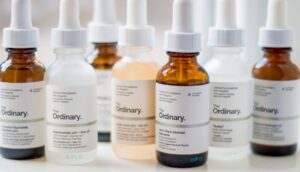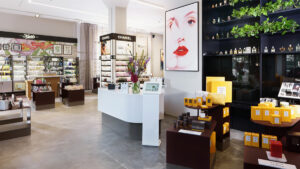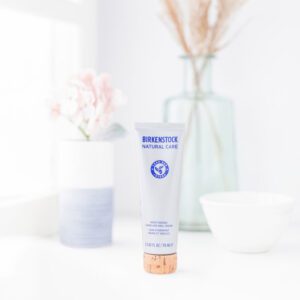5 Essential Skin Remedies for Summertime Skin Problems

Summer means spending more time outdoors. Summer can be beautiful, but it also comes with some problems—some literal, some figurative. The heat, the humidity, and the sun can all wreak havoc on your skin, causing everything from sunburns to acne to dryness. But don’t worry—we’ve got you covered with these Five Essential Remedies for summertime skin problems!
1) Sunburn
 It’s a popular misconception that you have to fry yourself to a crisp on the beach or in a tanning bed to achieve tanned skin. The truth is that damage from ultraviolet (UV) rays has nothing to do with how dark your skin is. If you’re going out in direct sunlight, even if it’s cloudy, wearing sunscreen—even if it’s SPF 50+—is an absolute must.
It’s a popular misconception that you have to fry yourself to a crisp on the beach or in a tanning bed to achieve tanned skin. The truth is that damage from ultraviolet (UV) rays has nothing to do with how dark your skin is. If you’re going out in direct sunlight, even if it’s cloudy, wearing sunscreen—even if it’s SPF 50+—is an absolute must.
At-home remedies can help you get rid of your sunburn faster and reduce its severity so your skin doesn’t end up peeling away or discoloring permanently. You can use aloe vera or other soothing moisturizers to get relief.
In addition to treating your burn at home, take steps to avoid future sunburns. Wear a broad-brimmed hat and clothes that cover your skin, especially during hours when direct sunlight is most intense. If you’re spending time in an area where it’s too hot or there isn’t much shade, try to find areas of partial shade—or walk under an umbrella. When you get home, use cool water or take a cool shower—preferably with some pain reliever added in—to help manage inflammation and itching. You can also try ice packs to soothe any soreness or swelling; these are especially effective on sensitive facial skin around eyes and lips since they aren’t exposed to as much UV light as other areas of your body. Avoid tanning beds.
2) Acne
Icky and intimidating, acne is one of summer’s biggest skin problems. It seems to thrive in high humidity, but it doesn’t help that a lot of common beauty products can also exacerbate pimples.
 Switching to lighter products that contain fewer ingredients and are less likely to clog pores—or simply cutting back on cosmetics entirely—can help control breakouts without irritating your skin. Keep bacteria at bay by washing your face with mild soap, or consider tea tree oil face wash as an alternative. Tea tree oil is naturally anti-bacterial and works especially well at fighting off acne-causing bacteria (though it will be better if you have combination or oily skin).
Switching to lighter products that contain fewer ingredients and are less likely to clog pores—or simply cutting back on cosmetics entirely—can help control breakouts without irritating your skin. Keep bacteria at bay by washing your face with mild soap, or consider tea tree oil face wash as an alternative. Tea tree oil is naturally anti-bacterial and works especially well at fighting off acne-causing bacteria (though it will be better if you have combination or oily skin).
Easing inflammation is another way to reduce breakouts. An ice cube or a gel pack can help soothe inflamed skin, while aloe vera and other natural moisturizers will reduce flaking and keep your skin supple. Aloe vera can also be used to soothe irritated. It’s best to focus on prevention if you want to avoid painful and unsightly acne scarring.
3) Heat Rash
If you find yourself spending time outdoors over summer, and especially if you’re participating in any sporting activities, chances are you’ll get a little heat rash. Heat rash can be hard to avoid because it happens when your skin is exposed to warm, humid air that’s usually accompanied by sweating and rubbing of skin against clothing or equipment.
A couple quick fixes: Make sure your clothes are well ventilated to help release some of that built-up moisture; also, try applying anti-perspirant at night before bed so it has a chance to work into skin creases.
If your rash doesn’t get better after a couple days, it may be heat prurigo, which is caused by a bacterial infection. If you think you have heat prurigo, see your doctor as soon as possible. The sooner you start treatment, the less likely you are to develop severe skin damage. It’s very common for heat rash to dissipate within one to two weeks, but it takes longer for heat prurigo.
4) Blemishes
Blemishes, including whiteheads and blackheads, are hard to avoid during summer because of all that time spent in direct sunlight. Spots can be tough to treat (and you should visit a dermatologist), but there are things you can do at home.
 Cleanse skin often with soap and water, blotting it with a tissue after each wash. Keep blotting skin with facial toner, which contains salicylic acid (the active ingredient in over-the-counter acne medications). To minimize or eliminate blemishes on your face or body, choose an aloe vera gel moisturizer—it contains soothing properties and is good for healing chapped or damaged skin.
Cleanse skin often with soap and water, blotting it with a tissue after each wash. Keep blotting skin with facial toner, which contains salicylic acid (the active ingredient in over-the-counter acne medications). To minimize or eliminate blemishes on your face or body, choose an aloe vera gel moisturizer—it contains soothing properties and is good for healing chapped or damaged skin.
If you have to wear makeup, choose a light-coverage foundation and concealer that won’t clog pores. Use powder over your makeup, which will soak up oil and minimize sweat. Wash off excess powder with a soft cloth or tissue. For extra protection from skin damage, try a moisturizer with broad-spectrum SPF protection as well as antioxidants like green tea extract to fight free radicals and reduce redness. A moisturizer should be applied before sunscreen—wait at least 20 minutes after applying moisturizer before putting on sunscreen so it can fully absorb into your skin, keeping it moist and helping it prevent premature wrinkles later in life.
5) Dry Skin
The most obvious summer skin problem is dry skin. The drying effects of sun exposure, air conditioning, and pool chemicals can wreak havoc on your skin’s moisture barrier. If you don’t want to suffer a wintery assortment of itchy rashes and flaky patches all summer long, it’s essential to find a moisturizer that fights dehydration and protects against UV rays.
The best solution is to apply moisturizer as soon as you come in from spending time outside; if you wait until your return indoors has done damage, you’ll be stuck with it for hours until your natural oils are replenished. You can also prep before going out by using an antioxidant-rich serum under or before sunscreen—and never leaving home without it!
Applying moisturizer liberally and frequently is a great way to head off dryness when it strikes. If you’ve developed a rash and don’t have time to shower, you can apply moisturizer or even baby powder, which dries quickly and may be less irritating than regular powder.
Finally, if all else fails and your skin has gotten severely dehydrated, it’s OK to drink water! Water intake helps keep things moving along in general, so a bit of H2O will also help rehydrate your face when other remedies fail.







